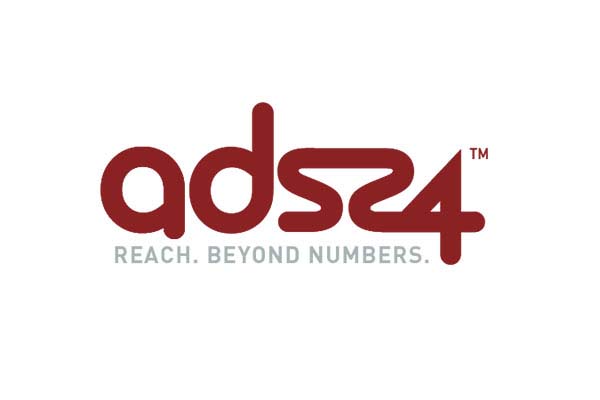Opinion Piece
by William Double, head of strategy at Mediacom
Ads24 spoke to William Double, Head of Strategy at MediaCom South Africa, about the role Sunday newspapers play in South Africans’ weekly media consumption. MediaCom is one of the world’s leading media agencies and was named Agency of the Year at 2016’s M&M Global Awards. Here is what Mr. Double had to say:
To begin to answer this question, we must first ask ourselves about consumer behaviour. Logically, media consumption differs between weekends and work days. Unfortunately, there aren’t accurate data sources available that give a consolidated view of media consumption habits by day, and whilst we have a view on listenership or viewership across radio and TV, we need to improvise a little and brands need to look at a range of data points to formulate a point of view, whilst incorporating an understanding of human nature.
Weekdays vs. weekends
One of the ways that brands could demystify this, is through media response data. To clarify, ‘response data’ is brand owned data that enables us to measure responses that are directly linked to a specific piece of advertising communication, either via the use of a unique URL, sms code or telephone number.
We typically see Monday to Wednesday’s tend to be very responsive periods, which leads to a number of conclusions such as people being more focussed on administrative tasks during this time. Subsequently, response generally decreases on weekends; people are far more relaxed and in a social state of mind.
Over weekends, people tend to shift away from more task-specific media properties, such as Google and business-orientated websites, and gravitate towards the ‘entertainment zone’ – movies, Netflix, YouTube etc. Media consumption therefore changes from a task-orientated focus to a leisure focus.
A significant platform we haven’t even touched on is mobile. Mobile penetration is the highest it’s ever been, and mobile media exposure is maintained during the week and the weekend. It is one medium that is always being used. As an almost omnipresent medium (due to its portability), usage remains stable and does not change significantly over weekends.
What has this got to do with Sunday papers you may ask – well knowing more about consumer behaviour and what their mind-set is over weekends helps us understand the role and relevance newspapers play more than you realise, and certainly helps set out the premise on what this Sunday read should be all about.
Internet news consumption increasing
As the world becomes more and more digital, media platforms are constantly being affected. This applies especially to newspapers as breaking news can be accessed via social platforms such as Twitter and Facebook – news of Trump’s surprise victory in the US or earlier last year the UK’s vote to exit the EU, for instance, was most likely broken on people’s newsfeeds before a newspaper even reached the printing press!
Consequently, the role of the printed newspaper has shifted – we get our instant news via digital platforms. Newspaper publishers are switching to provide ever-present, always-on access to their news content across touchpoints. And it’s not always just in a written format – it now extends to short, snackable videos as well.
The importance for news print publishers to adapt to the situation will only continue to grow as data costs drop and internet access increases, so too will online news consumption.
Don’t underestimate brand heritage
Whilst we’re still some time away from this in South Africa, I eventually believe the digital properties of daily newspapers will take over from their print origins – we see this already happening with some of the UK’s biggest household newspaper names, from the Times to the Daily Telegraph. However, there is something to be said for the value that newspaper brands have created.
Even if people no longer read the printed version, it doesn’t mean that they don’t trust the news brand to bring them current, relevant news. In fact, the heritage of these news brands is likely to stand them in great stead. Consumers are more likely to believe what they read in the digital version of one of these newspapers than in a lesser known digital environment.
As mentioned previously, consumers have different consumption patterns of media during the week versus the weekend. Apart from quantity, there is also a difference in terms of time spent with media. For instance, the length of interaction during a leisurely Sunday browse differs from a more focussed engagement during a midweek engagement.
A medium that remains more than relevant
It’s much more relaxing to read a printed Sunday paper than consuming the same news from a screen. Studies confirm that the brain cannot process as much information on screen format and therefore require sentences to be shorter and more to the point. As a consequence, stories are condensed because the same sort of depth is not possible in a digital format as with the printed word. The brain actually reads these platforms in a different way.
Based on these facts, it is my opinion that Sunday papers have an opportunity to be sustainable in the future as a source of opinion and summation. They need to position themselves as the go-to place for quality; the media platform that allows consumers to spend time with the news and absorb the big stories that have broken across the course of the week. You may have seen the headline in your newsfeed, but this is a chance to understand the story behind it…
A Sunday ritual that is here to stay
Newspapers are in a unique position to be curators of a unique space. Consequently, Sunday papers in particular will continue to play an important and irreplaceable role as a luxury offering in the media mix.
Current and future consumers can therefore continue to look forward to their Sunday ritual of putting their feet up, sipping on a coffee, and slowly paging through their favourite Sunday read – just as generations before them did.
Follow Ads24:
 |
 |
 |

|
About Ads24
Ads24 reaches six in ten South Africans, including print and digital readers. Ads24 touches the lives of over a half of all South Africans adults. While it is important to identify the size and segment the audience, looking at how Ads24 engages with its readers, is equally as important.
Ads24 is part of the Media24 Group representing 97 newspaper titles. From Dailies to Sunday papers to locals, Ads24 reaches almost every target segment in South Africa, no small achievement in such a diverse country. The most exciting element is how these titles become part of the community that Ads24 serves.
A news reader is an engaged reader. Ads24 news brands play an important and unique role in the daily lives of their readers. Ads24 sees beyond the numbers, beyond the market segments, to connect with the people on a personal level. Ads24 has the stats, the numbers, but also the insights.
Issued on behalf of Ads24 by Stone Soup Public Relations
For further information, please contact Daya Coetzee
daya@stonesoup.co.za, (011) 447 7241
























































































